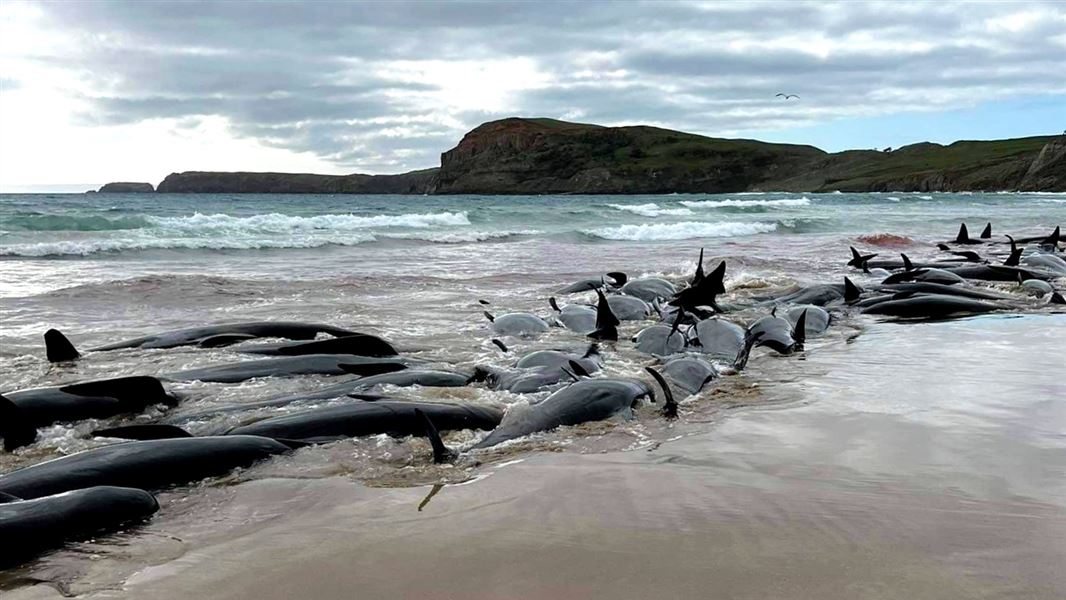Archived content: This media release was accurate on the date of publication.
Date: 12 October 2022
DOC has responded to two mass strandings of pilot whales on the Chatham Islands in the last week and can report the operations have now concluded.
The first group of approximately 240 pilot whales beached in the northwest of Rēkohu/Wharekauri/Chatham Island on Friday, 7 October. The second stranding occurred at Waihere Bay on Rangihaute/Rangiauria/Pitt Island on Monday 10 October, also involving almost 240 pilot whales.
Dave Lundquist, Technical Advisor Marine for DOC, said although some of the whales were dead on arrival, the remaining animals had to be euthanised to minimise suffering.
“We do not actively refloat whales on the Chatham Islands due to the risk of shark attack to humans and the whales themselves, so euthanasia was the kindest option” says Dave.
“All the stranded pilot whales are now deceased, and their bodies will be allowed to decompose naturally.
“This is a sad event for the team and the community, with many people being affected by it. Iwi and imi were present to support on Chatham, and DOC is extremely grateful to have the support of the community for this difficult work.”
Pitt Island is the most remote inhabited island in New Zealand, with limited communications and challenging logistics.
Pilot whales are prolific stranders, and the animals’ behaviour is not well understood. This type of event is not uncommon on the Chatham Islands, with the biggest recorded pilot whale stranding was an estimated 1,000 whales at the Chatham Islands in 1918.
Contact
For media enquiries contact:
Email: media@doc.govt.nz
